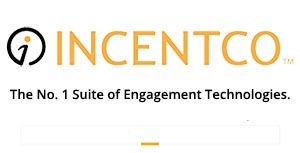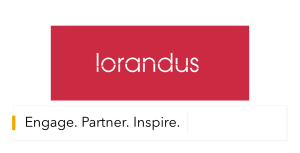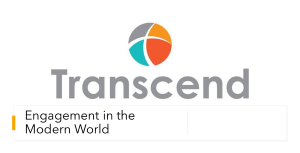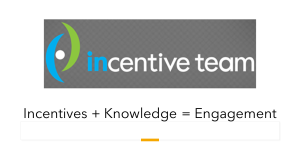Seeking an MBA in Stakeholder Capitalism Principles? Try the Darden Business School at UVA
 Recently named the No. 3 best business school by Bloomberg Business Week, with one of the most selective MBA programs in the country, the Darden Business School at the University of Virginia is probably one of the best places for business students to learn the values and practices of stakeholder capitalism.
Recently named the No. 3 best business school by Bloomberg Business Week, with one of the most selective MBA programs in the country, the Darden Business School at the University of Virginia is probably one of the best places for business students to learn the values and practices of stakeholder capitalism.Young People Today Take These Principles for Granted
Stakeholder Capitalism Is Not Just About Ethics, But Better Strategy
The terms stakeholder capitalism and ESG (environmental, social, governance) do not appear almost anywhere on the web site of the Darden School of Business at the University of Virginia, but the principles of focusing on purpose and ethics are at the heart of the school’s Master of Business Administration (MBA) program, according to Jared D. Harris, Samuel L. Slover Research Chair and Associate Professor of Business Administration and Faculty Director of Darden’s Institute for Business in Society (IBiS).
 “I can’t speak for what words the marketing department chooses to put on the web site, but I think that if you spoke with our faculty a theme that would likely emerge is this is a school where values are at the core of our program. There are a lot of great graduate business programs, but I think Darden believes in its bones that values and thinking about ethics and the role of business in society is the core of what it means to be a business leader.”
“I can’t speak for what words the marketing department chooses to put on the web site, but I think that if you spoke with our faculty a theme that would likely emerge is this is a school where values are at the core of our program. There are a lot of great graduate business programs, but I think Darden believes in its bones that values and thinking about ethics and the role of business in society is the core of what it means to be a business leader.”Harris dismisses the recent controversies about stakeholder capitalism and ESG. “I think these are topics that simply got politicized with an argument that doesn’t make any sense. How else can an organization enhance returns for shareholders unless it harmonizes the interests of all stakeholders? Companies that try to deceive customers by lowering package sizes or changing out higher quality ingredients for poorer ones might look better in their short-term earnings reports, but it will eventually come back to bite them as consumers become wise to what they are doing.”
Young People Today Take These Principles for Granted
According to Harris, “I remember as a young faculty member that an ethos that focuses on multiple stakeholder value creation used to rankle a few students. Some would get pretty strident about the notion that all that counts is dividends to investors.” While today he says almost all students take the school’s multi-stakeholder approach for granted, “it’s our job to make sure that students think about value creation in business in a broader way. There really isn’t much debate when I work with business executives either. While they may not be evangelizing or using the term stakeholder capitalism or other buzzwords, it’s very clear to me that most don’t believe there is any way to maximize shareholder returns in a vacuum. The only way excel is by having great employees, treating them well, and knowing that they are creating great products and services that satisfy customers.”
Ethics, he says, is a core course at the school on an equal footing with courses such as finance, marketing, accounting, and operations. “Ethics is considered a core discipline. It’s not a side topic and it’s not about philanthropy. It’s about your organization’s business model and asking, are we thinking about all the ways we create value?”
For the first year of the two-year MBA program, he explains, all students are divided into cohorts of about 70 students and take the same core courses over the year. The learning format is based on a participant-centered, case method learning model using a Socratic method, requiring students to show up fully prepared. The second year, they are free to take electives. “In that first-year lockstep program, the cohorts all go through the program together. They are sort of like Hogwarts, with competition between the houses that also includes going bowling, playing softball and soccer and or karaoke nights, and there is even a little point system in which they compete for the school's Darden Cup. This creates an esprit de corps among the students. They also study and prepare for the classes in cross-sectional learning teams.”
At Darden, he says, all courses are taught by professors, who also grade all the papers. There are no formal office hours, because students, he says, can simply email their professors when they wish to have a meeting.
.jpeg) The school’s faculty includes prominent advocates for stakeholder theory. R. Edward Freeman, Elis and Signe Olsson Professor of Business Administration authored in 1984 Strategic Management: A Stakeholder Approach, perhaps the first book to fully articulate the principles of stakeholder management. One of his colleagues, Bidhan (Bobby) L. Parmar, Shannon G. Smith Bicentennial Associate Professor of Business Administration, helped produce the documentary, “Fishing With Dynamite,” portraying the waste and damage caused by shareholder capitalism. The film features a clip of Harvard Business School Professor Emeritus Michael C. Jenson, a leading shareholder advocate in the last century, who now says: “Shareholder capitalism is stupid. Stop it.”
The school’s faculty includes prominent advocates for stakeholder theory. R. Edward Freeman, Elis and Signe Olsson Professor of Business Administration authored in 1984 Strategic Management: A Stakeholder Approach, perhaps the first book to fully articulate the principles of stakeholder management. One of his colleagues, Bidhan (Bobby) L. Parmar, Shannon G. Smith Bicentennial Associate Professor of Business Administration, helped produce the documentary, “Fishing With Dynamite,” portraying the waste and damage caused by shareholder capitalism. The film features a clip of Harvard Business School Professor Emeritus Michael C. Jenson, a leading shareholder advocate in the last century, who now says: “Shareholder capitalism is stupid. Stop it.” Darden also holds a summer seminar on stakeholder theory for faculty. It is designed to be “an opportunity for junior faculty and Ph.D. students to share strategies to integrate the stakeholder perspective into their research. Through the seminar’s week of structured dialogs, lectures by leading stakeholder experts, participant paper presentations, individual and team feedback sessions, and structured opportunities to collaborate on papers across disciplines, past seminars have served to create an active, interdisciplinary network of young scholars who’s research leverages stakeholder theory.”
Darden also holds a summer seminar on stakeholder theory for faculty. It is designed to be “an opportunity for junior faculty and Ph.D. students to share strategies to integrate the stakeholder perspective into their research. Through the seminar’s week of structured dialogs, lectures by leading stakeholder experts, participant paper presentations, individual and team feedback sessions, and structured opportunities to collaborate on papers across disciplines, past seminars have served to create an active, interdisciplinary network of young scholars who’s research leverages stakeholder theory.”Stakeholder Capitalism Is Not Just About Ethics, But Better Strategy
Stakeholder capitalism is not simply an ethics issue, Harris contends. “I’m also a strategy professor. Is it a good strategy to cut corners, to give your customers an inferior product hoping they won’t notice? Well, no, it’s a terrible strategy. It might work in the short run, but long before the term ESG was used there has been a debate about the economics of values and taking care of your stakeholders. There is an endless quest trying to find some definitive answer. The answer is no, it doesn’t always pay off. Sometimes the good guy loses something to the company cutting corners. But in the long run, if you are just focusing on the interests of the shareholders to the detriment of your customers and employees, or if you are paying so much attention to the customer you are forcing workers to pee in bottles to meet production demands, there will be a cost down the line. The goal is to have shareholders and all stakeholders working toward the same purpose, not pitting one interest against the other.”
Transparency, Harris believes, is important. “I am a big fan of accountability metrics and transparency, of having leaders who say this is what we’re going to do and then being accountable for what happened." Asked about the European Union Corporate Sustainability Reporting Directive (CSRD), expected to affect 60,000 or more of the largest companies in the world, he says, “Transparency doesn't always solve all the problems we think it's going to solve, but it rarely hurts.”
Darden offers a series of executive education programs online, on its campus, and a few other locations. Click here for more information.
Darden is currently in a multi-year fundraising campaign to support its mission: to be a purpose-driven business school inspiring responsible leaders through unparalleled transformational learning experiences. Click here for more information.
ESM Is Published by The EEA: Your Source for Effective Stakeholder Management, Engagement, and Reporting
Through education, media, business development, advisory services, and outreach, the Enterprise Engagement Alliance supports professionals, educators, organizations, asset managers, investors, and engagement solution providers seeking a competitive advantage by profiting from a strategic and systematic approach to stakeholder engagement across the enterprise. Click here for details on all EEA and ESM media services.
1. Professional Education on Stakeholder Management and Total Rewards
- Become part of the EEA as an individual, corporation, or solution provider to gain access to valuable learning, thought leadership, and marketing resources to master stakeholder management and reporting.
- The only education and certification program focusing on Stakeholder Engagement and Human Capital metrics and reporting, featuring nine members-only training videos that provide preparation for certification in Enterprise Engagement.
- EEA books: Paid EEA participants receive Enterprise Engagement for CEOs: The Little Blue Book for People-Centric Capitalists, a quick implementation guide for CEOs; Enterprise Engagement: The Roadmap 5th Edition implementation guide; a comprehensive textbook for practitioners, academics, and students, plus four books on theory and implementation from leaders in Stakeholder Management, Finance, Human Capital Management, and Culture.
2. Media
- ESM at EnterpriseEngagement.org, EEXAdvisors.com marketplace, ESM e–newsletters, and library.
- RRN at RewardsRecognitionNetwork.com; BrandMediaCoalition.com marketplace, RRN e-newsletters, and library.
- EEA YouTube Channel with over three dozen how-to and insight videos and growing with nearly 100 expert guests.
3. Fully Integrated Business Development for Engagement and Total Rewards
Strategic Business Development for Stakeholder Management and Total Rewards solution providers, including Integrated blog, social media, and e-newsletter campaigns managed by content marketing experts.
4. Advisory Services for Organizations
Stakeholder Management Business Plans; Human Capital Management, Metrics, and Corporate Sustainability Reporting for organizations, including ISO human capital certifications, and services for solution providers.
5. Outreach in the US and Around the World on Stakeholder Management and Total Rewards
The EEA promotes a strategic approach to people management and total rewards through its e-newsletters, web sites, and social media reaching 20,000 professionals a month and through other activities, such as:
- Association of National Advertisers Brand Engagement 360 Knowledge Center to educate brands and agencies.


















